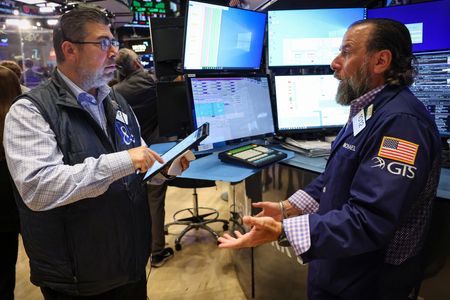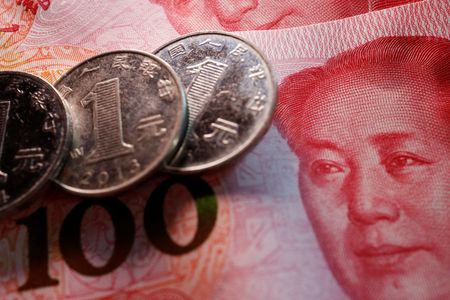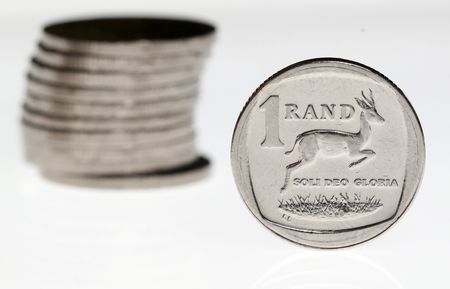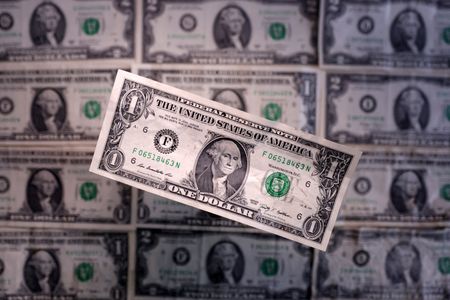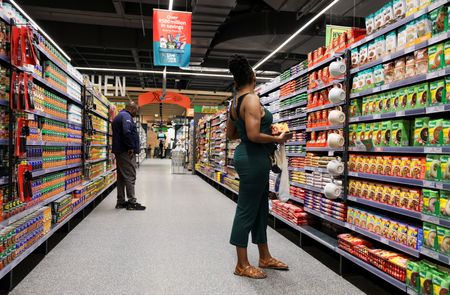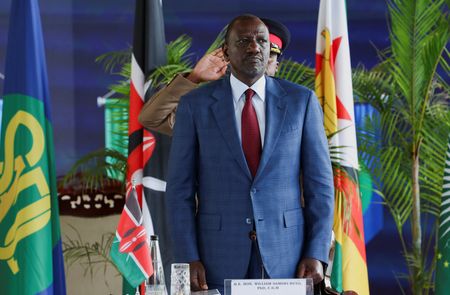By Scott DiSavino
NEW YORK (Reuters) -Oil prices climbed about 1% on Wednesday on a bigger-than-expected weekly drop in U.S. crude inventories as investors awaited the next steps in talks to end the Ukraine war, with sanctions on Russian crude remaining in place for now.
Brent crude futures were up 56 cents, or 0.9%, to $66.35 a barrel by 10:48 a.m. EDT (1448 GMT), while U.S. West Texas Intermediate (WTI) crude futures rose 66 cents, or 1.1%, to $63.01.
The U.S. Energy Information Administration said energy firms pulled 6.0 million barrels of crude from inventories during the week ended August 15. [EIA/S] [API/S]
That was bigger than the draw of 1.8 million barrels forecast by analysts in a Reuters poll and the decline of 2.4 million barrels that market sources said the American Petroleum Institute trade group cited in its figures on Tuesday.
“We had a decent-sized crude drawdown. We saw a rebound in exports … That and the strong refinery demand really makes this a bullish report,” said John Kilduff, partner with Again Capital.
On Tuesday, crude prices fell more than 1% – with WTI closing at its lowest level since May 30 – on optimism that an agreement to end the Russia-Ukraine war seemed closer.
U.S. President Donald Trump, however, conceded that Russian President Vladimir Putin might not want to make a deal.
“Not so sure about the peace deal – will have to see if something moves forward over the coming days … It seems oil prices are thrown down one day, followed by a rebound the next,” said Giovanni Staunovo, an analyst at UBS.
Trump said on Tuesday the U.S. might provide air support as part of a deal to end Russia’s war in Ukraine.
A day earlier, Trump said he was arranging a meeting between Putin and Ukrainian President Volodymyr Zelenskiy to be followed by a trilateral summit among the three presidents. Russia has not confirmed it will take part in talks with Zelenskiy.
“The likelihood of a quick resolution to the conflict with Russia now seems unlikely,” Daniel Hynes, senior commodity strategist at ANZ, said in a note on Wednesday.
(Reporting by Scott DiSavino in New York and Alex Lawler in London; Additional reporting by Arathy Somasekhar in Houston, Colleen Howe in Beijing and Jeslyn Lerh in Singapore; Editing by Helen Popper, Chizu Nomiyama and Paul Simao)



